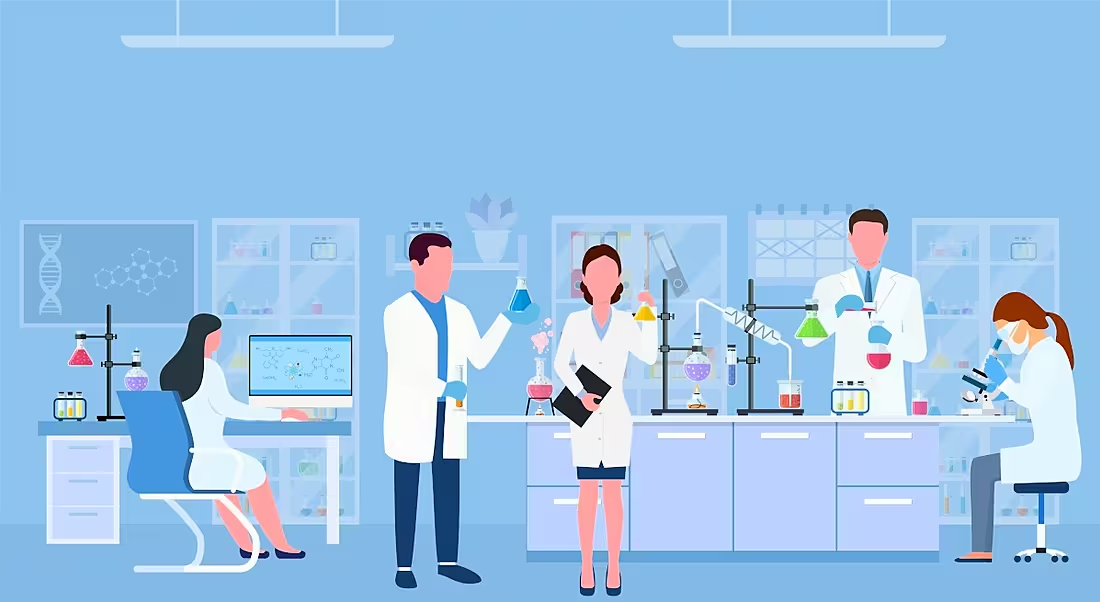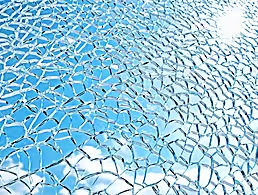Research can be a vocation more so than a career and it presents a lot of challenges. It’s also very rewarding, as these scientists explain.
Environmental scientist Dr Jean O’Dwyer is thinking of the positive aspects of a career in research. “The first positive that popped into my head is that I’m never bored,” she says. “I remember working part-time jobs as a teenager and the minutes just dragging on – that doesn’t happen anymore. A career in research is exciting and rewarding, you really feel like you’re making a difference, however small.”
Another positive is the people she meets. “I have made so many wonderful friends through science who have enriched my life.” These include the students she teaches and mentors. “There is something very special about watching graduates you have taught and helped shape go on and achieve great things; you surprise yourself with how proud you are of them.”
Prof Mathias Senge of Trinity College Dublin’s (TCD) Biomedical Sciences Institute agrees. He tells SiliconRepublic.com that the most fun he had at work was when he would go out to primary schools doing hands-on experiments for the kids. He regrets that this aspect of his job has slowed down since the pandemic.
“The most joy is always working with changing constellations of students and collaborators. I always aimed to have an internationally and culturally mixed research group. It keeps you young and grounded and is a prerequisite for developing new ideas,” he says.
Creativity, initiative and innovation
While the school visits have slowed somewhat, Senge is still able to get out and bring science to the public. He describes himself as a “synthetic organic chemist”, meaning he makes new molecules and investigates their properties for a variety of applications. One science communication project he is currently involved in is a collaboration with a group of artists, which Senge says has “really changed the perception and thinking of both the scientists and artists” involved. Bringing science to artists is a fitting endeavour for Senge who says he has spent much of his career working with what he terms “the colours of life” – or the red colour of blood (haemoglobin) and the green colour of plants (chlorophylls).
‘The most joy is always working with changing constellations of students and collaborators’
As well as meeting people, the work itself is stimulating enough for researchers to feel like they are constantly learning even when they are already considered experts in their fields. “There are many positives. Research has allowed me to explore new ideas, concepts and theories. In effect providing a stimulating environment, which has fostered my intellectual growth and encouraged me to think critically,” says Dr David O’Connor, assistant professor at Dublin City University.
“No day is truly the same. I would also say that I have full autonomy and freedom in my work. I can choose the topics and methodologies, and pursue my own interests. This independence, I feel, has nurtured my creativity, initiative and innovation,” he adds.
O’Connor’s work to date has mainly centred around monitoring and modelling and forecasting bioaerosols such as airborne particles like pollen, fungal spores and bacteria. He is currently working on a project that looks at understanding chemical and biological aerosols in the atmosphere.
His favourite project that he has worked on so far is one that looked into developing a preliminary pollen monitoring network and forecast model for Ireland. “It was my first grant as the main principal investigator (you always remember your first) and the sheer amount of work we as a team did was amazing,” O’Connor recalls.
‘Science never sleeps’
He says his career has allowed him to “make significant discoveries, develop innovative solutions and expand our understanding of the influence of air quality on society”. He hopes his new project on bioaerosols will go towards helping improve air quality for people, particularly those with allergies and conditions like asthma. “Currently little to no monitoring or forecasting of these particles is undertaken in Ireland. I am looking to change that.”
He also wants to overhaul the current methods for sampling bioaerosols, which he says have remained the same for around 70 years. “This made me think about innovative ways bioaerosols could be monitored. By using laser technology we can now deliver the same data (as more traditional techniques) but in real time.”
For O’Dwyer, too, the opportunity to make a difference in the world through her work is important. Her area of specialism within environmental science is environmental health, which she says is “a fairly new, but super interesting branch of science” where researchers make connections between the natural world and human health and wellbeing.
“I am particularly interested in waterborne infectious disease which is intrinsically linked to water quality. More recently though, I have focused on climate change and human health, which is a really important area of research. It’s important that we understand how environmental change will impact populations and that people understand that rising global temperatures can also impact health and wellbeing.”
Unlike O’Connor, she has difficulty picking her favourite project. “It’s hard to pick a favourite project, it’s like being asked to choose a favourite child,” she jokes before settling on a project funded by the Environmental Protection Agency that looks at the social impact of the climate crisis in the Republic of Ireland.
She says it is her “most exciting” project at the moment. “It blends physical science with social science to help understand this big challenge we’re collectively facing. I firmly believe that the future of science is multidisciplinary and this project is a good nod to that.” As well as that project, O’Dwyer says her proudest achievement has been her role as deputy director of the Science Foundation Ireland Centre for Research in Applied Geosciences (iCRAG). She describes it as “a career highlight”.
‘Room for improvement’
While academia enables people to move up the ranks and become research leaders and innovators in their respective fields, it has its downsides. Senge, the most senior researcher we spoke to for this piece, says he is acutely aware of the negative aspects of being an academic. For one thing, the work involved in research “has become very complex”.
“Next to research excellence, one must be a creative writer, an administrator and manager, a finance and HR specialist, a communicator versed in classic and social media, an educator and sometimes ‘parent’ for younger co-workers,” he says. And he points out that “the lack of third-level funding in Ireland means that more and more of the non-research activities are pushed onto the individual PIs”.
O’Connor agrees with Senge on the funding issue. “Securing funding and resources for research can be challenging. This is highly competitive and limited funding can constrain the scope and scale of what you would like to do,” he says. “Application forms can be overly complex and require a significant time commitment. Depending on your frame of mind or family and work constraints, these applications can be arduous.”
‘It’s hard to pick a favourite project, it’s like being asked to choose a favourite child’
He feels like science can be a survival-of-the-fittest situation as there is constantly so much pressure to keep up with developments to remain relevant. “Science never sleeps and it moves forward with or without you. The pursuit of research excellence can demand long working hours, including evenings, weekends and holidays. Balancing personal life, family commitments, and maintaining wellbeing can be demanding.”
This is something that researcher Tammy Strickland also highlighted earlier in the week. Work-life balance is clearly something the research sector is lacking. O’Dwyer describes academia as more of a lifestyle than a career.
“Academic careers do present challenges, which I feel we should talk about more candidly. It’s not an easy job; it can be competitive and often lacks clear boundaries. I often say that being an academic is a lifestyle choice more than a career and that can be both good and bad.”
“There is more to life than science, and at times, it can be easy to forget that. I think we really have to be mindful of the pressures of academia and look after each other, particularly early-career researchers,” she says. “Overall, however, I think the positives overwhelming outweigh the negatives, but there is always room for improvement.”
10 things you need to know direct to your inbox every weekday. Sign up for the Daily Brief, Silicon Republic’s digest of essential sci-tech news.




